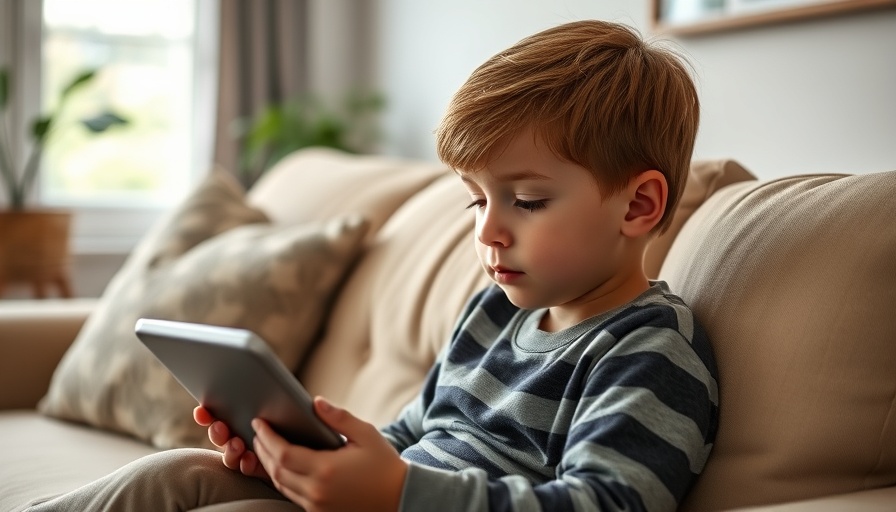
Understanding Screen Time's Impact on Children
As parents navigate the digital landscape, the question arises: how much screen time is too much? Recent discussions surrounding children’s interaction with screens reveal a complex interplay of risks and benefits. While technology can provide rich educational resources and social connections, excess screen time can negatively impact a child’s development, health, and social skills.
Developmental Concerns: What To Watch For
Experts underline the importance of monitoring how screens are affecting children's cognitive and emotional growth. For instance, prolonged screen time is correlated with increased risks of behavioral issues, anxiety, and even depression. In a study covered by various health organizations, the American Academy of Pediatrics recommends that children aged 2 to 5 should spend no more than one hour per day on recreational screen time, while children under two should avoid it altogether.
The Fine Line Between Education and Addiction
It’s essential for parents to differentiate between educational and recreational screen time. While educational apps can enhance learning, unrestricted access to entertainment can lead to potential addiction. Research suggests that children are more likely to engage with content that demands little effort, leading to passive consumption rather than active learning. Setting limits and providing guidance on appropriate educational tools can help mitigate this issue.
Engaging in Device-Free Alternatives
So what can parents do? Introducing device-free activities is a great start. Family game nights, outdoor sports, or arts and crafts can stimulate children’s creativity and foster a stronger family bond. Specifically, activities that promote physical movement not only benefit children physically but also help reduce reliance on screens for entertainment.
Building Healthy Digital Habits
In this digital age, building healthy screen habits is crucial. Encourage discussions about online safety and the importance of privacy. Explain to children the potential dangers of sharing personal information and foster an atmosphere where they feel comfortable addressing any concerns regarding their digital footprint. Practical tools like parental controls can help moderate content and time spent online, making it easier for parents to manage their child’s screen habits.
Future Insights: Navigating the Digital Landscape
As technology continues to evolve, understanding its implications on children becomes all the more essential. Parents must remain informed about emerging trends in digital engagement and adapt parenting strategies accordingly. Balancing screen time with various other activities will not only cultivate healthier habits but also contribute to the overall well-being of the child.
Conclusion: Take Action For Your Child's Future
Teaching children to navigate the digital world responsibly begins at home. By fostering open conversations about screen time, closely monitoring their activities, and introducing engaging device-free alternatives, you can empower your child to thrive in a technology-rich environment. Now is the perfect time to reflect on your family’s screen habits—start today and embrace a balanced approach to technology.
 Add Row
Add Row  Add
Add 




 Add Row
Add Row  Add
Add 

Write A Comment